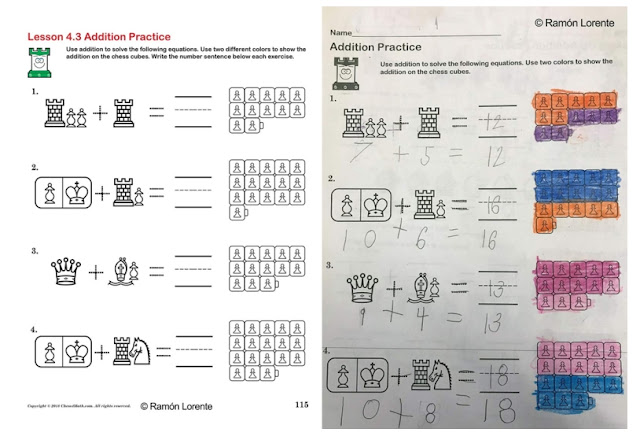First conference: Chess with Mathematics with Paddy Morgan
The subject of the first conference discussion is about the connections of Mathematics to chess with Michele Guerin. Chess may be a fantastic instrument for studying math as it uses many mathematical ideas and techniques. Chess players must calculate the pieces that are on the board, determine how many movements are necessary to reach each tile, and keep a record of how many moves each player has made. This can aid in developing numerical fluency and fundamental counting abilities. Chess movements are recorded using algebraic notation, which employs numbers and letters to represent the various squares in the game. Students can discover how to use parameters in mathematics and solve problems with the aid of this. Chess pieces follow a set of rules that may be compared to geometric ideas like lines, angles, and symmetry.
Students can better comprehend and visualize geometric ideas by examining the geometry of the chessboard and their motions. Chess requires making educated guesses about your opponent's movements and figuring out the likelihood of various outcomes. This can aid in better understanding statistics and probability. Chess players must use reasoning, foresee their opponent's movements, and evaluate various plans. Critical thinking and problem-solving skills may both be enhanced by doing this. After discussing these curricular requirements at the conference, I was given the chance to experiment with a larger game board and pieces.
Since some of the participants were new to the games and the rules, the admin, Paddy Morgan, went through the rules with us and gave us some tips on how to remember the many moves that each Chess piece may make. As we gained greater understanding of this, we were equipped to use chess to examine various mathematical ideas. Through this conference and what I have learned, I will be using it to further teach in my classes to get the students thinking about all the forms math comes in.
Second conference: Communication with Brian Stone
“It's not what you say, It's how you say it”
For working teachers, parent contact is essential because it creates a safe and effective learning environment for students. Establishing a relationship of trust with families via continuous communication with parents can assist instructors better serve their kids. Parents are more inclined to support teachers and schools if they believe that instructors care about their children's education. Teachers can provide crucial information with parents about their child's development, such as academic achievement, conduct, and attendance. This can assist instructors in identifying and addressing any concerns that might be hurting the child's learning as well as helping parents keep aware and active in their child's education.
Teachers can address any worries or inquiries that parents might have regarding their child's education by maintaining regular contact with them. This can assist to avoid misunderstandings and guarantee that parents are completely aware of the development and demands of their kid. Together, parents and teachers can pinpoint and resolve any issues that could be impeding a child's ability to learn. Teachers and parents may cooperate on approaches and plans that will help the kid achieve by working together. From this, I have taken in how essential communication skills are for teachers, the barriers to effective communication, techniques for effective communion, and communication and technology.References:
Morgan, Padralg (2023, March 21). Chess and Mathematics. Niagara University Education Conference, Vaughn, ON, Canada.
Stone, Brian ( 2023, March 21). Communication. Niagara University Education Conference, Vaughn, ON, Canada.\
Courtesy of Olfat@NUO-2023




No comments:
Post a Comment